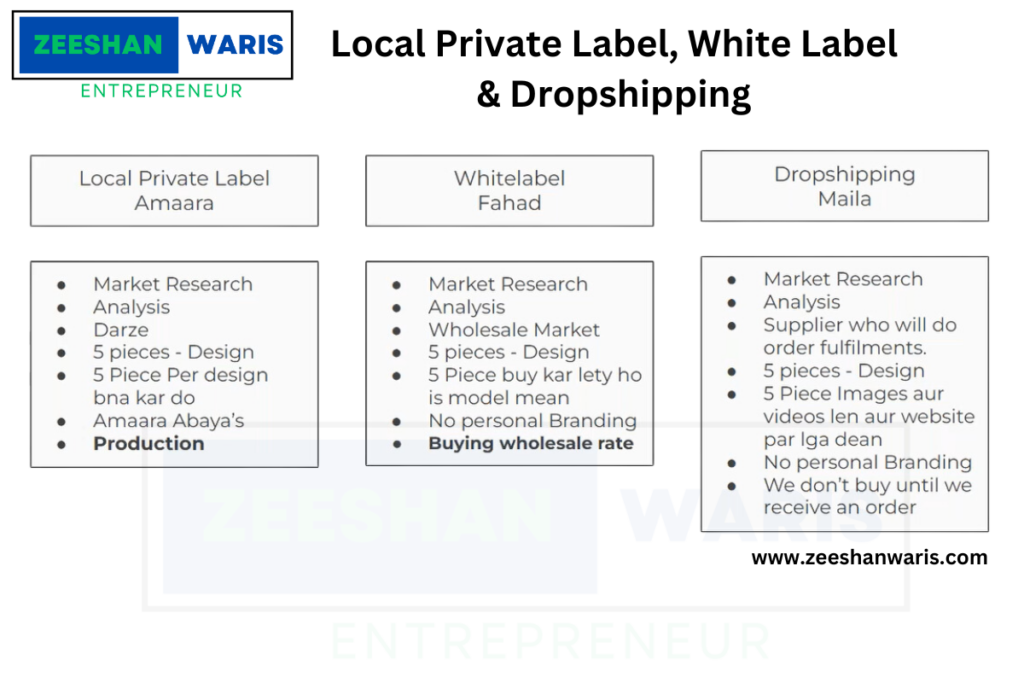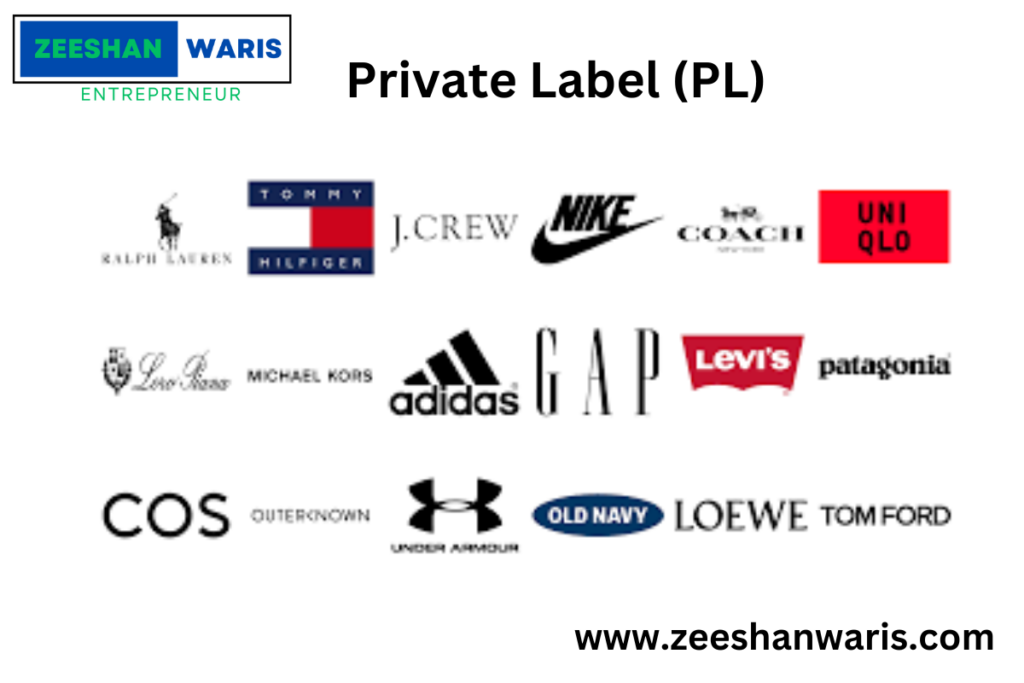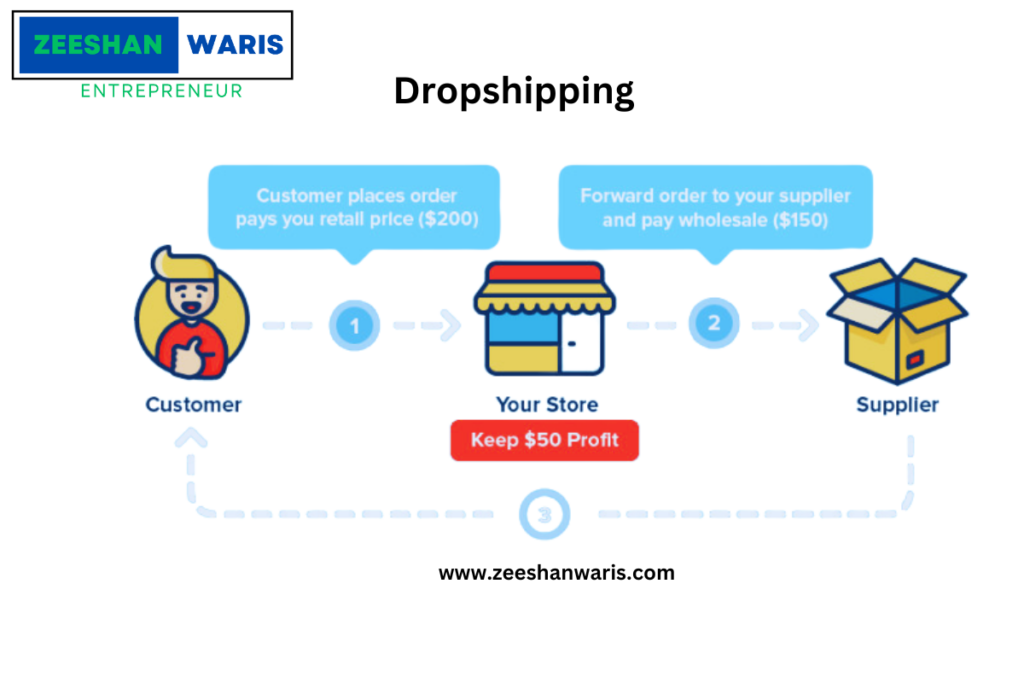Introduction
In the world of online shopping, creating a store for your own products is an exciting adventure. Think of brands like Khadi and Al-Karam; they started small and grew big. This is what Private Label (PL) or White Label (WL) is all about—making your mark with unique products.

White Label:
White labeling involves purchasing products in bulk from a wholesale supplier and subsequently selling them online via your website or social media channels. With this approach, there’s no requirement to add your logo, and you have the freedom to adjust prices as you see fit.

Private Label:
“Private label means when a store or company makes its own brand of products. They work with manufacturers to create these products, which are sold exclusively under their brand name. It’s different from the white label, where products are already made and just get rebranded. With private labels, the store can offer unique products that only they sell, making their brand more special and different from others.”

Dropshipping:
Dropshipping is a type of retail business where the seller doesn’t keep the products in stock. Instead, when they receive an order from a customer, they purchase the item from a third party and have it shipped directly to the customer. This means the seller doesn’t have to handle the products themselves or hold inventory, making it a low-risk and low-cost way to start an online store. The seller makes a profit by selling the product at a higher price than they paid the supplier.

The Journey Begins: How to Start Your Own PL/WL Store
Starting your own e-commerce store might sound complicated, but it’s quite straightforward when you know the steps. Here’s how you can turn your dream into reality:
- Product Hunting: Discovering the perfect product that customers will love.
- Pricing Your Product: Finding the right price that attracts buyers and ensures a good profit.
- Sourcing Your Product: Whether it’s through references or market research, getting your product is key.
- Naming Your Store: A catchy name can make a big difference. Learn how to choose one that sticks.
- Choosing Your Domain: Your online address is crucial. We’ll guide you on how to pick a domain name that captures your brand essence.
- Creating Your Store: With an investment starting from 100K to 150K Rs in Pakistan, anyone can launch their store. And if you’re tight on budget, offering store creation services can be a great start.
Making Your Products Stand Out
Once your store is up, making your products appealing to customers is the next big step:
- Product Photography: A picture is worth a thousand words. Learn how to showcase your products in the best light.
- Listing Your Products: A guide on how to effectively add your products to your store and attract buyers.
- Choosing Courier Services: The right courier service ensures your products reach your customers on time and in good condition.
Building Trust and Engagement
Trust is everything in e-commerce. Here’s how to earn it:
- Customer Service: Good customer care is non-negotiable. We’ll discuss the importance of fulfilling customer expectations accurately.
- Navigating Ads and Marketing: From Facebook to TikTok ads, discover the basics of reaching your audience effectively.
- Creating User-Generated Content: Engage your customers and encourage them to share their experiences with your products.
When operating an e-commerce store, it’s essential to avoid certain practices
- Avoid selling replicas: Replicas can damage your brand’s reputation and may lead to legal issues. It’s important to offer authentic products to maintain trust with your customers.
- Avoid placing your logo on products purchased from wholesale markets: Instead, consider utilizing white labeling or private labeling strategies. White labeling involves rebranding existing products, while private labeling involves creating your own branded products. These approaches help differentiate your products and enhance your brand identity.”
Importance of Location to Starting an E-commerce Business
Introduction:
Many people wonder where to begin when starting an e-commerce business from home.
Choosing Your Business Model:
- Local Private Label Store:
- Location:
- Ideal locations include big cities like Karachi, Lahore, etc.
- Reason:
- Proximity to manufacturers is crucial for sourcing products.
- White Label Business:
- Location:
- Should be where wholesalers and courier services are easily accessible.
- Importance:
- The availability of wholesalers and efficient courier services is essential for this model.
- Dropshipping:
- Requirements:
- Only need an internet connection and a laptop to start.
- Advantage:
- Minimal infrastructure is needed, making it accessible from anywhere.
Looking Ahead: Planning for the Future
Your e-commerce journey doesn’t stop at launching. We’ll explore how to grow and adapt your store for future success.
